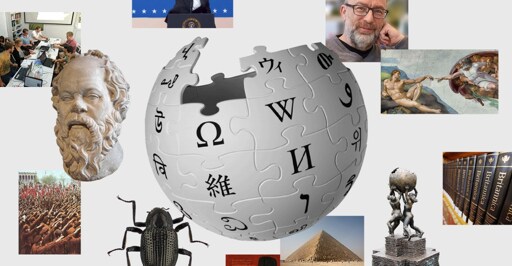When armies invade, hurricanes form, or governments fall, a Wikipedia editor will typically update the relevant articles seconds after the news breaks. So quick are editors to change “is” to “was” in cases of notable deaths that they are said to have the fastest past tense in the West. So it was unusual, according to one longtime editor who was watching the page, that on the afternoon of January 20th, 2025, hours after Elon Musk made a gesture resembling a Nazi salute at a rally following President Donald Trump’s inauguration and well into the ensuing public outcry, no one had added the incident to the encyclopedia.
Then, just before 4PM, an editor by the name of PickleG13 added a single sentence to Musk’s 8,600-word biography: “Musk appeared to perform a Nazi salute,” citing an article in The Jerusalem Post. In a note explaining the change, the editor wrote, “This controversy will be debated, but it does appear and is being reported that Musk may have performed a Hitler salute.” Two minutes later, another editor deleted the line for violating Wikipedia’s stricter standards for unflattering information in biographies of living people.
But PickleG13 was correct. That evening, as the controversy over the gesture became a vortex of global attention, another editor called for an official discussion about whether it deserved to be recorded in Wikipedia. At first, the debate on the article’s “talk page,” where editors discuss changes, was much the same as the one playing out across social media and press: it was obviously a Nazi salute vs. it was an awkward wave vs. it couldn’t have been a wave, just look at the touch to his shoulder, the angle of his palm vs. he’s autistic vs. no, he’s antisemitic vs. I don’t see the biased media calling out Obama for doing a Nazi salute in this photo I found on Twitter vs. that’s just a still photo, stop gaslighting people about what they obviously saw. But slowly, through the barbs and rebuttals and corrections, the trajectory shifted.
Wikipedia is the largest compendium of human knowledge ever assembled, with more than 7 million articles in its English version, the largest and most developed of 343 language projects. Started nearly 25 years ago, the site was long mocked as a byword for the unreliability of information on the internet, yet today it is, without exaggeration, the digital world’s factual foundation. It’s what Google puts at the top of search results otherwise awash in ads and spam, what social platforms cite when they deign to correct conspiracy theories, and what AI companies scrape in their ongoing quest to get their models to stop regurgitating info-slurry — and consult with such frequency that they are straining the encyclopedia’s servers. Each day, it’s where approximately 70 million people turn for reliable information on everything from particle physics to rare Scottish sheep to the Erfurt latrine disaster of 1184, a testament both to Wikipedia’s success and to the total degradation of the rest of the internet as an information resource.
But as impressive as this archive is, it is the byproduct of something that today looks almost equally remarkable: strangers on the internet disagreeing on matters of existential gravity and breathtaking pettiness and, through deliberation and debate, building a common ground of consensus reality.
The right is ramping up attacks on Wikipedia for “partisan bias” right now. If you think Wikipedia has partisan bias, it’s a really good indicator that your beliefs are out of line with reality.
While I understand why Wikipedia is revered in an internet flooded by AI slop, I feel complicated seeing Wikipedia being described as this knowledge utopia when the truth is so…complicated.
Anyone who has participated in extensive editing should know what I mean. US-Europe centric, gender bias, systemic racial bias, etc…
Its very difficult when you are fighting the system.
All of that is true, and the article brings it up. But the article is mostly about increasing accusations of Wikipedia having a liberal bias (e.g. recently from US Republican senator Ted Cruz), which the article suggests are not well-founded. I’m concerned about these increasing attacks, because if right-wing political types can reshape Wikipedia in the way they want, I expect all the biases you list will get worse, not better.
The best link in this story has to be to the Erfurt Latrine Disaster. Talk about a shitshow.
I love these grotesque historical events. The Cadaver Synod is pretty good too: pope hates predecessor so much he has him exhumed, trials the corpse and declares him retroactively not pope. Great Halloween fun!
To those who believe that truth derives from authority, and not from debate backed with evidence, a website where the debate is visible and clear undermines its authority. But just because we don’t see that process at other publications doesn’t make them more reliable, it just means we can’t judge the quality of that process.
Wikipedia’s system has its flaws, but the ability to know that, to see those flaws and be aware of them, makes it more reliable. It also makes it very difficult for authoritarians to seize control of for their own ends, to shut down debate and impose consensus. That’s the real reason it is under attack, because those who wish to impose consensus have justify them selves publicly.






